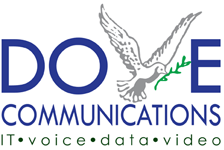Password Best Practices
According to a report by Verizon, weak or stolen passwords are responsible for 80% of data breaches, while 60% of users reuse the same password across multiple accounts.
Maintaining good password hygiene is essential to protect against these threats and keep your assets secure.
Weak or compromised passwords can easily be hacked, allowing cyber criminals to gain access to data and steal info.
To avoid such risks, here are some best practices to consider:
Enterprise-Level Password Management Solution for Businesses
End users continue to adopt and share cloud-based apps outside IT’s control. We strongly urge our clients to consider protecting all apps, end users, and data with a pervasive enterprise-level password management solution.
What makes a good enterprise password manager?
A good enterprise password manager must:
- Allow end users to securely share login credentials for shared accounts
- Generate random, secure passwords
- Offer a variety of authentication factors
- Have the ability to use it across multiple devices, apps and browsers
- Utilize the proper encryptions
- Overall easy to use
While there are SO many password management apps to choose from, we’re happy to provide our top picks since we are well-versed in the technology field, of course.
Use strong passwords
A strong password is long and complex, incorporating a mix of letters, numbers, and symbols. If you have a password manager as listed above, we suggest allowing the app to pick a strong password for you. Avoid using easily guessable passwords or personal information such as birth dates or names.
Update passwords or revoke access when employees leave the organization
Changing passwords every 90 days or sooner is recommended, and access to data should be revoked when employees are no longer authorized to access it. This step is often overlooked, especially in SMBs with high staff turnover.
Enable two-factor authentication
This adds an extra layer of security by requiring a second form of identification, such as a code sent to your phone, in addition to your password.
Don’t reuse passwords
Using the same password for multiple accounts is risky, as a compromised password can put all your accounts at risk. Use a unique password for each account to minimize damage.
Avoid writing down passwords
Writing down passwords is risky as it can easily be misplaced or lost. If you must write them down, keep them in a secure place such as a locked cabinet.
Don’t Share Your Passwords
Never share your passwords. Instead, provide each person with their own access credentials to create an audit trail in case of a breach.
Be Wary of Phishing Scams
Phishing scams involve fraudulent emails or text messages that appear legitimate, asking you to click on a link and enter your password. Verify links before clicking to avoid giving hackers access to your account.
By following these best practices, you can maintain good password hygiene and keep your accounts secure.
If you need any assistance with your managed network security, assistance with programs you may need, or would like a complimentary network evaluation, contact us today!








